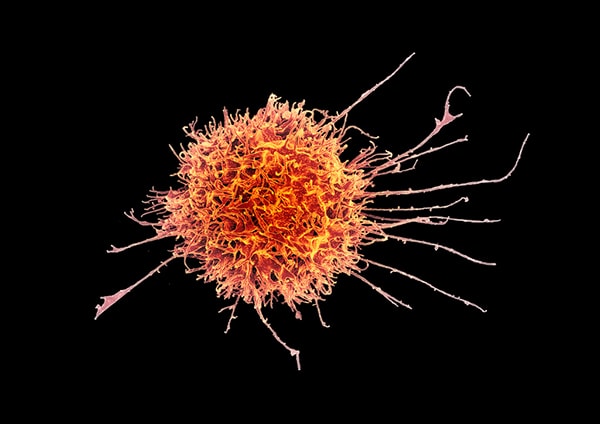
Natural killer cells can be modified to seek & destroy certain cancers
While we mainly focus on stem cells, other parts of cord blood are showing promise for the treatment of disease. We told you previously about the benefits being explored for cord blood Tregs in preventing graft-versus-host disease in stem cell transplantations and ameliorating the effects of autoimmune diseases such as diabetes, rheumatoid arthritis and multiple sclerosis. As a further look at the benefits found in "what else you’re banking," we are now going to explore cord blood–derived natural killer (NK) cells.
What are natural killer cells?
Natural killer cells are cells of the immune system that are able to identify and kill cancer and tumor cells and cells that have been infected with certain viruses. Compared to T cells, NK cells are considered "ready to go" because they have the ability to fight anything they recognize as foreign and do not need to have previously encountered the malignant cells to respond. Natural killer cells are some of the first immune cells to regenerate post-transplant and help stave up any sort of relapse. They also show potential for their targeting of specific cancer types such as leukemia, lymphoma, melanoma (skin cancer), renal cell carcinoma (kidney cancer) and breast and ovarian cancer. All of these things make them exceptionally strong candidates for chronic or treatment-resistant cases of cancer.
Part of the excitement behind NK cells lies in their ability to home in on and target specific cancers and tumors. They do this via the chemokines that cancer cells express. In one such study, cord blood–derived natural killer cells were transduced with three genes. One enabled them to target certain cancer cells expressing a specific protein (CD19). Another was used because it specifically and critically improved the function of the cord blood natural killer cells. A third was a suicide gene, which allowed researchers to test the efficacy of a built-in safety measure if ever needed. They found their development to be a novel approach with "striking efficacy" in mice. They have now moved forward with clinical trials in adults with relapsed or treatment-resistant chronic lymphocytic leukemia, acute lymphocytic leukemia or non-Hodgkin lymphoma, with the first patient undergoing treatment just this week.
Why are NK cells important to cord blood banking?
While found in blood and bone marrow, NK and NK progenitor cells are most abundant in cord blood. In the study of above, researchers found one unit of cord blood could yield enough NK cells to treat five patients. Their youth offers advantages over natural killer cells from those other sources, including the ability to more quickly replicate. They also have a greater potential to target malignant cells and have been shown to cause higher rates of tumor cell death. With the ease of collecting and cryo-preserving cord blood natural killer cells, they could be used in the future to greatly enhance the treatment of tumors and cancers and would further expand the benefits found in cord blood banking.